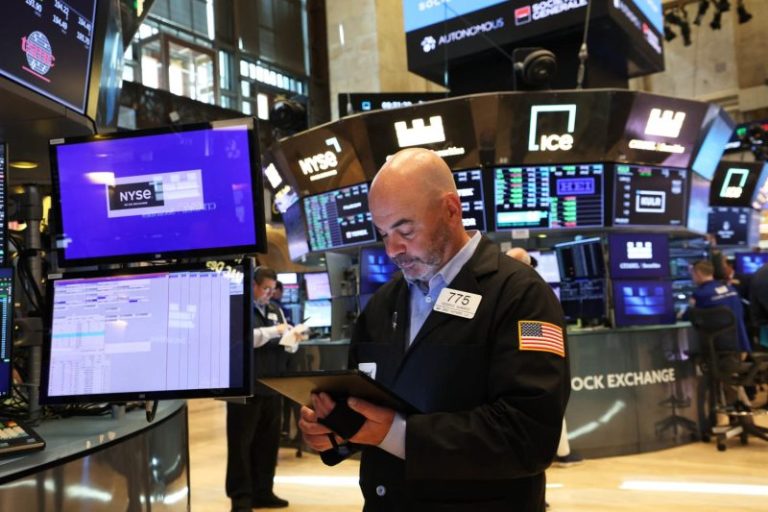While U.S. President Donald Trump’s tariffs play out in U.S. courts, another one of his proposed laws could weaponize the American tax system.
Investment banks and law firms warn this step could prove to be as significant as the impact of duties on investors.
The “One Big Beautiful Bill Act,” which passed through the U.S. House of Representatives last week, includes the most sweeping changes to the tax treatment of foreign capital in the U.S. in decades under a provision known as Section 899. The bill must still gain the Senate’s approval.
“We see this legislation as creating the scope for the US administration to transform a trade war into a capital war if it so wishes,” said George Saravelos, global head of FX research at Deutsche Bank on Thursday.
“Section 899 challenges the open nature of US capital markets by explicitly using taxation on foreign holdings of US assets as leverage to further US economic goals,” Saravelos added in the note to clients, under the subtitle “weaponization of US capital markets in to law.”
Section 899 says it will hit entities from “discriminatory foreign countries” — those that impose levies such as the digital services taxes that disproportionately affect U.S. companies.
France, for instance, has a 3% tax on revenues from online platforms, which primarily targets big technology firms such as Google, Amazon, Facebook, and Apple. Germany is reportedly considering a similar tax of 10%.
Under the new tax bill, the U.S. would hit investors from such countries by increasing taxes on U.S. income by 5 percentage points each year, potentially taking the rate up to 20%.
Emmanuel Cau, head of European Equity Strategy at Barclays, suggested that the mere passage of the tax legislation could make dollar assets less valuable for foreign investors.
“In our view, this is a risk for those companies generating US revenues, and domiciled in countries that have enacted Digital Services Taxes (DST) or are implementing the OECD’s Under Taxed Payment Rule (UTPR),” Cau said in a Friday note to clients.
He highlighted companies such as London-listed Compass Group, which provides catering services to U.S. schools, and InterContinental Hotels, which owns at least 25 luxury hotels in the U.S., are likely to be affected by the proposed law.
“Given US net international investment position is sharply negative, there is indeed scope for capital outflows if indeed S899 passes through the Senate in its current form,” he added.
The impact of the bill won’t be limited to European companies or individuals from those states.
The bill “could significantly increase tax rates applicable to certain non-U.S. individuals and business, governmental, and other entities,” said Max Levine, head of U.S. tax at the law firm Linklaters.
This means it could also ensnare governments and central banks, which are large investors of U.S. Treasuries. France and Germany, for instance, held a combined $475 billion worth of U.S. government bonds as of March.
The proposed tax would lower returns on U.S. Treasuries for those investors as “the de facto yield on US Treasuries would drop by nearly 100bps,” Deutsche Bank’s Saravelos added. “The adverse impact on demand for USTs and funding the US twin deficit at a time when this is most needed is clear”.
“It’s very bad,” said Beat Wittmann, chairman of Switzerland-based Porta Advisors. “This is huge — this is just one piece in the overall plan and it’s completely consistent with what this administration is all about.”
“The ultimate judge for this is not our opinions, it’s the bond market,” Wittmann added. “The U.S. bond market is discounting these developments, and we have seen in the last few weeks, that if there was a safe haven move, investors clearly prefer German bunds.”
Large Australian pension funds with U.S. investments have also been reportedly concerned by the bill, since Australia operates a medicines subsidy scheme that is opposed by large U.S. pharmaceutical companies.
Legal experts at the Mayer Brown law firm suggest that “significant changes” could be made to the bill as it passes through the U.S. Senate before it’s enshrined into law by Trump.
“As such, there may be questions about whether the provisions of the proposal that override tax treaties could be included in the US Senate’s version of the tax bill,” Mayer Brown’s experts said.
This post appeared first on NBC NEWS





